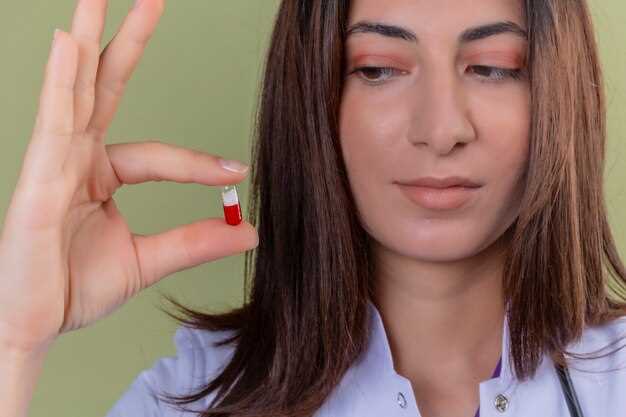
Atorvastatin is a medication used to reduce high levels of cholesterol and triglycerides in the blood. It belongs to a class of drugs known as statins, which work by inhibiting an enzyme involved in the production of cholesterol in the liver. Taking atorvastatin correctly is important to maximize its benefits and minimize the risk of side effects. Here are some important guidelines to follow:
- Take atorvastatin exactly as prescribed by your healthcare provider. Follow the instructions on the prescription label and do not take more or less of the medication than recommended.
- Take atorvastatin with or without food. It can be taken with or without meals, but try to take it at the same time every day to help you remember.
- Swallow the tablet whole. Do not crush, chew, or break it, as this may affect the way the medication is released and absorbed in your body.
- Avoid consuming large amounts of grapefruit or grapefruit juice. Grapefruit can interact with atorvastatin and increase the risk of side effects. If you regularly consume grapefruit or grapefruit juice, discuss it with your healthcare provider.
- Continue taking atorvastatin even if you feel well. High cholesterol often has no symptoms, and stopping the medication without medical advice may increase your risk of heart disease or stroke.
- Inform your healthcare provider about all other medications you are taking. This includes prescription drugs, over-the-counter medications, vitamins, and herbal supplements. Some medications can interact with atorvastatin and affect its effectiveness or increase the risk of side effects.
Remember to consult your healthcare provider if you have any questions or concerns about taking atorvastatin.
Understanding Atorvastatin
Atorvastatin is a medication that belongs to the class of drugs known as statins. It is commonly prescribed to help lower cholesterol levels and reduce the risk of heart disease and stroke.
Atorvastatin works by inhibiting an enzyme called HMG-CoA reductase, which is responsible for producing cholesterol in the liver. By blocking this enzyme, Atorvastatin helps to decrease the amount of cholesterol that is made and increase the clearance of existing cholesterol from the bloodstream.
Lowering cholesterol levels is important because high cholesterol can lead to the build-up of fatty deposits in the arteries, known as plaques. These plaques can restrict blood flow and increase the risk of heart attack and stroke.
By taking Atorvastatin as prescribed by your healthcare provider, you can help to lower your cholesterol levels and decrease your risk of cardiovascular events. However, it is important to note that Atorvastatin is just one part of a comprehensive treatment plan that should also include a healthy diet, regular exercise, and other lifestyle changes.
It is crucial to have a good understanding of Atorvastatin and how it works in order to make informed decisions about your health. If you have any questions or concerns about Atorvastatin, be sure to discuss them with your healthcare provider.
What is Atorvastatin?
Atorvastatin is a medication used to lower cholesterol levels and reduce the risk of heart disease. It belongs to a class of drugs called statins, which work by blocking an enzyme in the liver that is responsible for producing cholesterol. By reducing the amount of cholesterol in the body, Atorvastatin helps prevent the buildup of plaque in the arteries and lowers the risk of heart attack and stroke.
Atorvastatin is commonly prescribed to individuals with high cholesterol levels, as well as those who have a history of heart disease or other risk factors such as diabetes or smoking. It is often used in combination with a healthy diet and exercise to maximize its effectiveness.
How does Atorvastatin work?
Atorvastatin works by inhibiting HMG-CoA reductase, an enzyme that plays a key role in cholesterol synthesis. By blocking this enzyme, Atorvastatin lowers the production of cholesterol in the liver, which in turn reduces the amount of LDL (low-density lipoprotein) cholesterol in the bloodstream. LDL cholesterol is often referred to as “bad” cholesterol because it can build up in the arteries and lead to plaque formation.
In addition to reducing LDL cholesterol, Atorvastatin also helps increase levels of HDL (high-density lipoprotein) cholesterol, which is considered “good” cholesterol because it helps remove LDL cholesterol from the bloodstream.
Benefits of taking Atorvastatin
Taking Atorvastatin can provide several benefits, including:
- Lowering LDL cholesterol levels
- Reducing the risk of heart disease
- Preventing heart attacks and strokes
- Slowing the progression of atherosclerosis
- Improving overall cardiovascular health
In addition to these benefits, Atorvastatin has been shown to have anti-inflammatory effects, which may contribute to its ability to protect against heart disease.
It is important to note that Atorvastatin should not be used as a substitute for a healthy lifestyle. It is most effective when combined with a balanced diet, regular exercise, and other heart-healthy habits.
Why take Atorvastatin?
Atorvastatin is a medication that is commonly prescribed to help manage high cholesterol levels. High cholesterol can increase the risk of developing heart disease and other cardiovascular conditions. Atorvastatin is specifically designed to lower cholesterol levels in the blood and reduce the risk of these serious health issues.
Taking Atorvastatin can help:
- Lower cholesterol: Atorvastatin is a type of medication known as a statin, which works by inhibiting the enzyme responsible for producing cholesterol in the liver. By reducing the production of cholesterol, Atorvastatin helps lower the levels of “bad” cholesterol (LDL) and triglycerides in the blood while increasing levels of “good” cholesterol (HDL).
- Prevent plaque buildup: High levels of cholesterol can lead to the buildup of plaque in the arteries, which restricts blood flow and increases the risk of heart disease and stroke. Atorvastatin helps prevent the formation of new plaque and can even reduce existing plaque in the arteries, improving overall heart health.
- Reduce the risk of cardiovascular events: By lowering cholesterol levels and preventing plaque buildup, Atorvastatin can significantly reduce the risk of cardiovascular events, such as heart attacks and strokes. It has been shown to be effective in reducing the incidence of these events in individuals with high cholesterol.
It is essential to understand that Atorvastatin should be taken as part of a comprehensive treatment plan for managing high cholesterol. This may include lifestyle changes such as a healthy diet, regular exercise, and quitting smoking. Always consult a healthcare professional for personalized advice and guidance on managing cholesterol levels.
When to take Atorvastatin?

Atorvastatin should be taken as directed by your healthcare provider. It is usually taken once a day, with or without food. However, it is important to follow the specific instructions given to you by your doctor or pharmacist.
The timing of when you take Atorvastatin may depend on your personal preference and lifestyle. Some people find it easier to remember to take it at the same time every day, such as in the morning or at night. Others may prefer to take it with a meal to reduce the chance of stomach upset.
It is important to take Atorvastatin regularly and consistently to get the maximum benefit. Missing doses or taking it inconsistently may decrease its effectiveness in lowering cholesterol levels and reducing the risk of cardiovascular events.
If you forget to take a dose of Atorvastatin, take it as soon as you remember. However, if it is almost time for your next scheduled dose, skip the missed dose and continue with your regular dosing schedule. Do not take a double dose to make up for a missed one.
It is also important to note that Atorvastatin is often prescribed as part of a comprehensive treatment plan that includes lifestyle changes such as a healthy diet, regular exercise, and smoking cessation. It is important to follow all recommended lifestyle modifications in addition to taking Atorvastatin to achieve the best results.
How to take Atorvastatin correctly?
When taking Atorvastatin, it is important to follow the instructions provided by your healthcare provider. Here are some guidelines to ensure you take Atorvastatin correctly:
1. Follow the prescribed dosage
Take Atorvastatin exactly as prescribed by your doctor. Do not take more or less than the recommended dosage, and do not stop taking it without consulting your healthcare provider.
2. Take it at the same time every day
It is best to take Atorvastatin at the same time each day to help establish a routine. This can also help you remember to take it regularly.
3. Take it with or without food
Atorvastatin can be taken with or without food. However, it is important to take it consistently with or without food to maintain consistent absorption in the body.
4. Swallow the tablet whole

Do not crush, chew, or break the Atorvastatin tablet. Swallow it whole with a glass of water to ensure the proper dosage is delivered into your system.
5. Store it properly
Keep Atorvastatin in its original container and store it at room temperature, away from moisture and heat. Avoid exposing it to direct sunlight.
By following these guidelines, you can ensure that you are taking Atorvastatin correctly and maximizing its effectiveness in managing your cholesterol levels.
Possible side effects of Atorvastatin
Taking Atorvastatin may cause some side effects. It is important to be aware of these potential side effects and discuss them with your doctor.
Common side effects may include:
- Muscle and joint pain: Some patients may experience muscle pain or weakness, as well as joint pain while taking Atorvastatin.
- Headache: Headaches are a common side effect of Atorvastatin and may occur in some patients.
- Stomach pain and digestive issues: Atorvastatin can cause stomach pain, nausea, diarrhea, or constipation which may affect some individuals.
- Liver problems: Rarely, Atorvastatin can cause liver problems. If you experience yellowing of the skin or eyes, dark urine, or abdominal pain, consult your doctor immediately.
- Allergic reactions: In rare cases, allergic reactions to Atorvastatin can occur. Symptoms may include rash, itching, swelling, severe dizziness, or difficulty breathing. Seek medical attention if you experience these symptoms.
It is important to note that not all patients will experience these side effects. If you have concerns about taking Atorvastatin or if you experience any unusual symptoms while taking it, consult your doctor.
